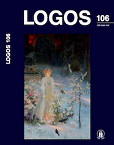The Concept of the Illegitimate Child in the Naive Picture of the World: Linguocognitive and Ethnocultural Angles
The Concept of the Illegitimate Child in the Naive Picture of the World: Linguocognitive and Ethnocultural Angles
Author(s): Oleh TyshchenkoSubject(s): Comparative Linguistics, Cognitive linguistics, Western Slavic Languages, Eastern Slavic Languages, Cultural Anthropology / Ethnology, Phraseology
Published by: Visuomeninė organizacija »LOGOS«
Keywords: illegitimate child; phraseme; beliefs; naive worldview;
Summary/Abstract: The article presents the frame modeling of the concept of “illegitimate child” in the Russian, Czech and Slovak languages compared to English. On the basis of the fundamentals of Slavic ethnolinguistics, cognitive semantics and cultural anthropology, the epistemological layer of the concept of illegitimate child is reconstructed. Its evaluative, figurative and metaphorical components are analyzed These components are presented mainly in dialectal and regional phrasemic content of the compared languages and partly in some literary texts (based on the data of the National Corpus of the Russian language). The following principles and structural and semantic types of secondary figurative nomination were revealed. These which are objectified in phraseological euphemisms FIND + PHYTONYM LOCUS, FIND (BE BORN) + UNCLEAN PLACE, BRING + ARTIFACT (SUBJECT, PLACE), SUDDENLY APPEAR FROM). The related naive notions, stereotypes and beliefs that act as mental-symbolic correlates of the signs of cultural nomination are reconstructed.
Journal: LOGOS - A Journal of Religion, Philosophy, Comparative Cultural Studies and Art
- Issue Year: 2021
- Issue No: 106
- Page Range: 173-183
- Page Count: 11
- Language: English

